“Agnes,” a troubling movie, officially selected at the 2021 Tribeca Film Festival, a movie willingly left with blanks to fill that leaves the audience even more hooked to it (and one of those interviews you are sorry that they need to end).
A leading character, Mary, with multiple facets to decrypt, and that’s the beauty of it. A wonderfully crafted indie horror feature executive produced and starring Molly C. Quinn. We sat in front of a screen and we chatted with Molly about filling those blanks to bring Mary to life, the challenges of indie filmmaking, and the way these challenges bring the creative community together to give voice to all the different perspectives out there.
What is your first cinema memory?
I’d say the latest cinema memory that affected me the most was a film I watched 10 years ago, called “Senso,” which is from the 50s, a beautiful film and it really opened my eyes to what women can do in cinema, and it really gave me a fresh perspective on the work I wanted to do, as I was transitioning from childhood into adulthood. So, that movie holds a special place in my heart.
What do you usually look for in a script, what is it that makes you say yes to a new project?
If I’m lucky enough to be in the position where I get to choose if I want to do it [laughs], what I really love, what really attracts me to a story is if there’s a journey: I like a character who has to interact with many different people, like in life, you can be having a good day, but then one interaction with your employer, or someone on the street, can either make you have a terrible outlook on the world, or it can shift and make it something beautiful. So, I like to have as many different emotions and perspectives in a script as possible, that’s what I look for.
What about “Agnes”? What made you say yes? You’re also the executive producer, so you’re completely involved in the project…
That was the big part of it, I loved the idea of putting together an incredible, unique ensemble cast. This kind of “Pilgrim’s Progress,” or a lot of Christian literature, is based on a one-wayward soul who ends up interacting with people, either trying to push her off the path of righteousness, or those trying to keep her on the path. And in “Agnes” it’s kind of up to the viewer to decide if all these people are testing her to be good, or if they’re pushing her to the brink of destruction. And even to this day, when I think about the movie, I go back and forth, and that’s what I really like about it. Mary is so complicated in her desire to remember this great love for her son that she had, but at the same time she’s using that to hide from the world, and she’s unable to move on. And the world around her is kind of shaking her, saying, “You have to deal with it here and now”. Even in the last scene, I think the audience and myself are left wondering, “Is she gonna be okay?”.
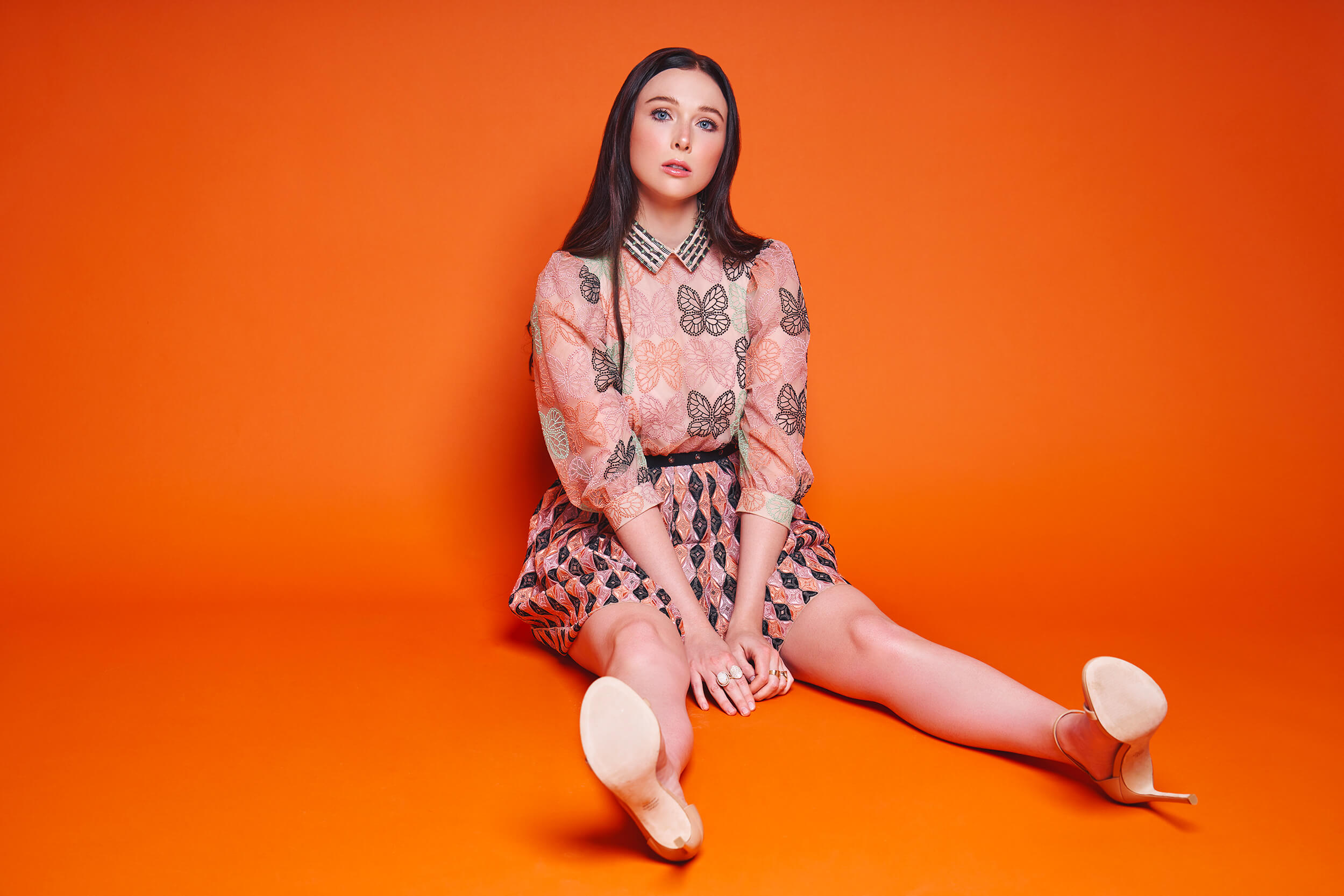
“…it’s kind of up to the viewer to decide if all these people are testing her to be good, or if they’re pushing her to the brink of destruction.”
One of the things I liked the most about the movie is that you have some blanks. You, as an audience member, have the chance to fill the blanks as you perceive them. Did you, as you were building the character, “complete” the back story? How did you work on the character?
It’s a great question. Something that I find really helpful and I especially used in creating Mary was starting a diary for her, using the script as a template. Like you said, imagine you read the script for the first time, there’s a lot you don’t know. So, I went back and decided she was from a small town in California, I decided she was a wild teenager, which isn’t a bad thing, it’s a great thing actually, but sometimes, when you’re wild and you don’t have a support system, and you end up with big decisions like pregnancy, it can be difficult to carry on your own. So, I went back and I wrote all that out, I focused on what her relationship with her mother would have been like, I focused on what her favorite things would have been to do with her son, and I read the pregnancy book “What to Expect When You’re Expecting:” that was like my bible, I read it four or five times, just trying to really understand the massive choice of creating life, and that love spilling out of her into this beautiful little boy, and then her mental breakdown when she loses him.
For me, that last scene came from a sickness, something that she, looking back, felt like she could have protected him, but she had been told by everyone around her, “Stop taking him to the hospital for every little thing!”, so she thought, “Okay, I’m being paranoid, I’ll keep him at home.” Instead of going with her gut, she let people influence her thinking, and that really hurt her, so she carries the guilt of her son’s death. So, those were the building blocks for me, that supported Mary throughout the entire film.
Was there a particularly difficult challenge? If so, how did you overcome it, in building Mary?
I think the most difficult was finding a way to get one-on-one time with a toddler. Luckily, I have a friend who has a son, and I called her and said, “Hey, can I steal you and your son for the day?” [laughs] I spent an entire day with him, and all the puzzle pieces finally fit together, because I saw his little hands and how he interacted, and I started to understand that greater love outside of yourself. But without that, without my friend letting me borrow her son, I don’t think I would have been able to build that authentic relationship for the movie.
The movie is clearly divided into two halves, and you see that particular scene that looks like the turning point for Mary: for me, it was when she took off the veil before the really strong scene. For you, what was the turning point for her? When you were playing her, how did you change your approach to her in the two halves of the film?
I think you’re absolutely right. When she takes off that veil, it’s almost like a snake shedding its skin, it’s really letting go of something and we see it in a tactile way, but it’s also, for her, internally, she’s letting go of something, or even better might be a wolf in sheep’s clothing, she’s been pretending to be this righteous person, but really, what she’s been doing is looking for solitude. When she’s confronted by her friend, by Agnes, or by this presence, whether it’s God or the Devil, inside of her, that is what takes out the Jenga piece, that’s what makes her start to wave around and say, “Oh, I’m not safe here anymore, I have to leave, people are starting to see me.” I think you’re absolutely right that that’s the turning point, that’s what sets the rest of the movie in motion.
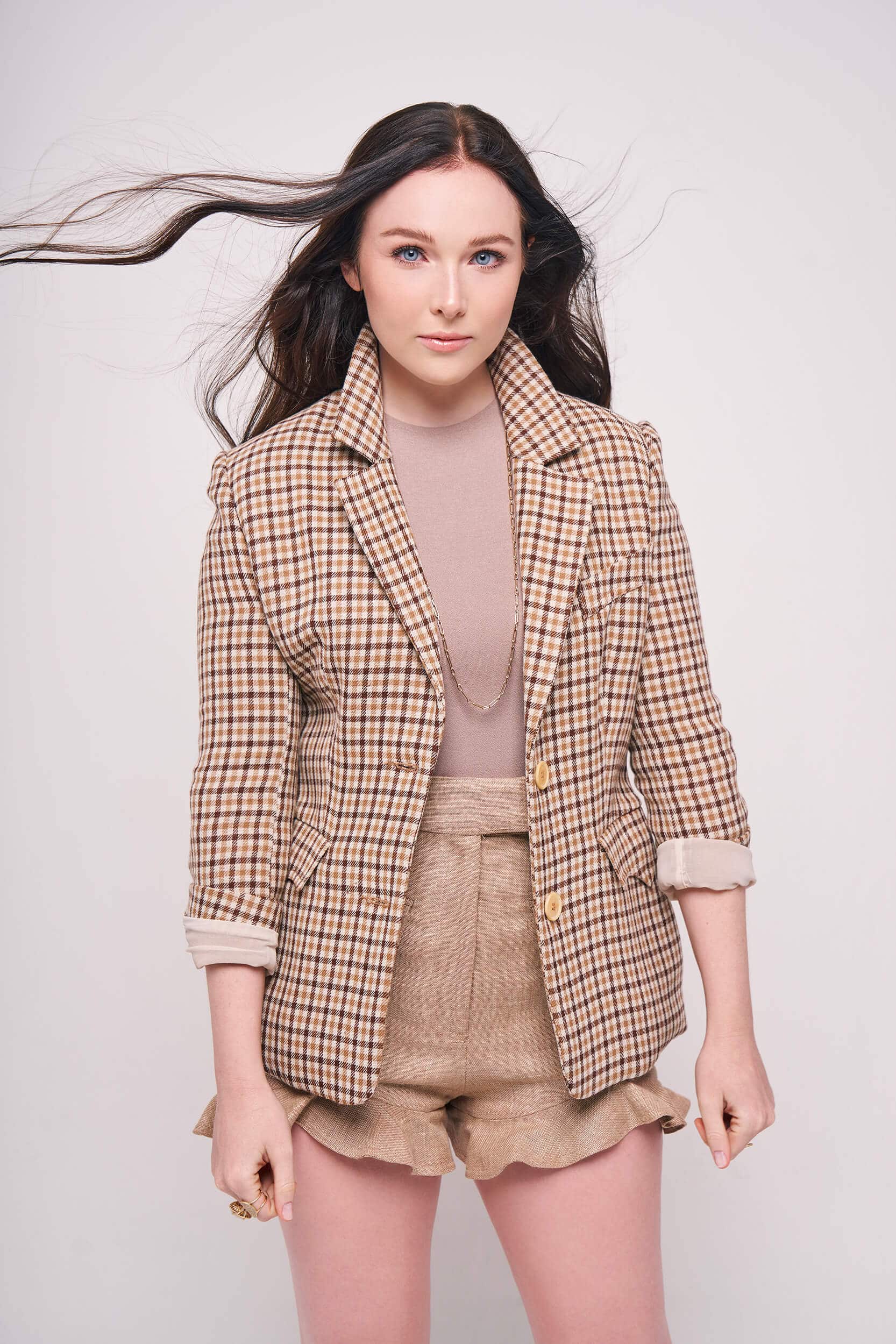
“Something that I find really helpful and I especially used in creating Mary was starting a diary for her, using the script as a template.”
In general, religion, faith, the crisis of faith, are still recurring themes in cinema. Why do you think we, as the audience, are so drawn to these kinds of themes? We have so many to choose from. One of the things I liked the most about the movie is that it’s still another point of view, it’s refreshing, it’s not something that you’ve already seen.
Thank you, I really appreciate that because there have been so many moments in cinema focused on the crisis of faith, and we just wanted to do something a tiny bit different, we weren’t trying to reinvent the genre; it’s not possible, there are better crisis of faith movies, but we thought, “what if we just tell it from this perspective of someone who’s just trying to ignore all the good advice?” I think as people, we’re drawn to it because the idea of guilt, the idea that we are not living correctly, or that what we want is not what is good, based on this hierarchy of religion, torments us.
I grew up very religious, I had a crisis of faith, and to this point, I’m an atheist, but that doesn’t mean that I’m not constantly thinking about these teachings, and I become angry at them because they were supposed to be right, but then you find out that the people who were teaching you, unfortunately, were hypocrites! Especially when you’re young, when you’re impressionable, that can really make you do a one-eighty. So, I think that’s why everyone can find something to like in it because we’ve all been lied to.
I grew up in Italy, I totally understand what you mean, you might just end up getting lost in the middle of everything.
Absolutely, you get lost! And I think we all want a guiding light and we think, because we’re taught, that it does exist, that it’s this outward symbol, that it’s the Church, that it’s a parent or a teacher.
But I think the only guiding light is inside of us, and I sincerely hope that everyone at some point in their lives finds that it’s inside, that you trust your gut.
I think that individuals are born with a sense of their direction, and as soon as you can get rid of all the other influences, the quicker you can start to know yourself and know which direction is right for you because it’s only an individual journey. And it can be kind of scary, too, some people say, “Oh, no, you’re together, it’s safety,” but I don’t think that’s the real way. The only real way is inside you and it’s tailor-made just for you.
To sum everything up, how would you describe “Agnes” in one word?
Troubling.
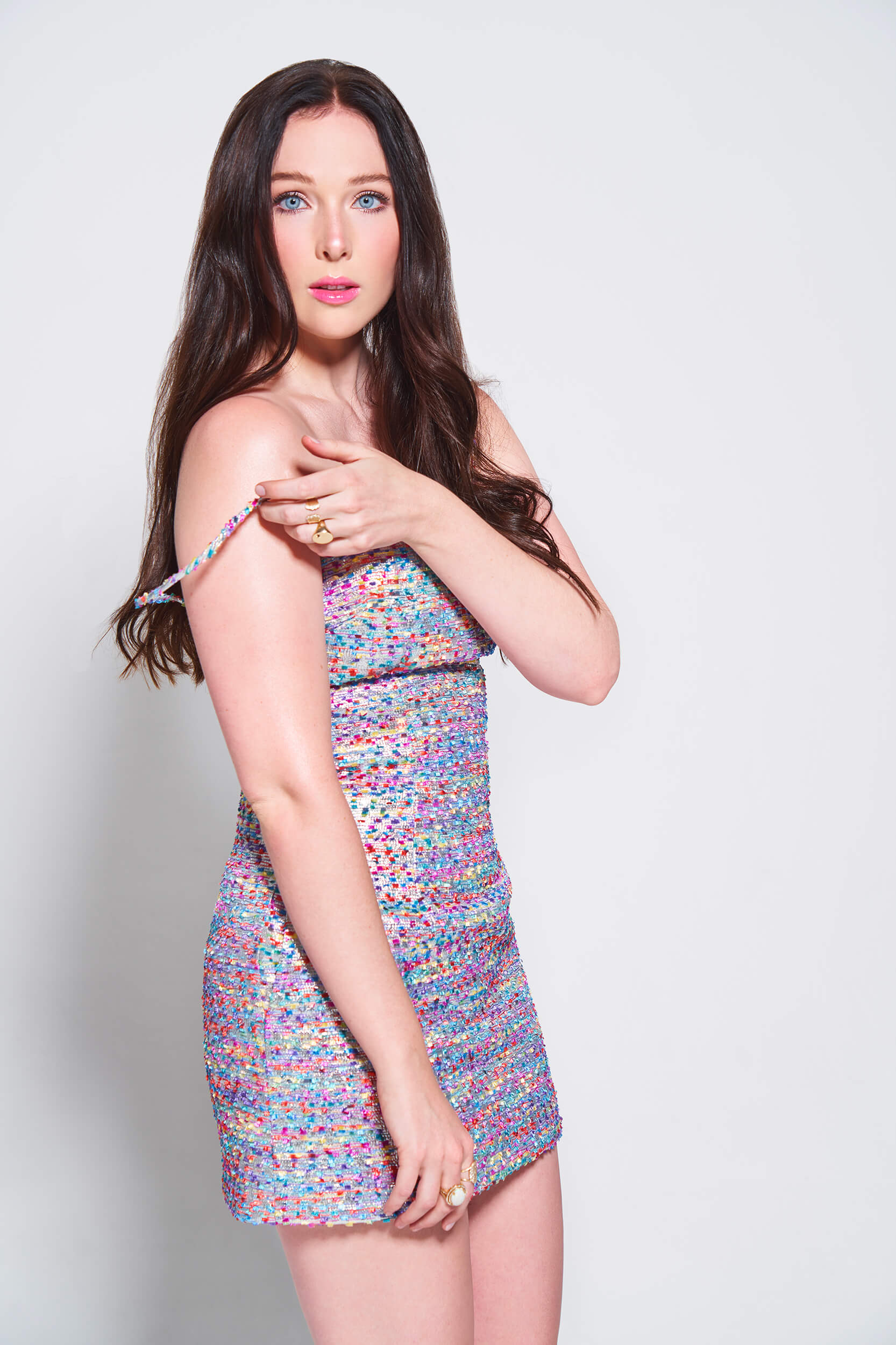
Speaking of horror movies, what’s your favorite horror movie of all time?
My favorite horror of all time? I love horror movies… I’m going to give three: a film from the UK called “Possum” – I recommend it, even though it’s in English, I put on the subtitles because the accent is very thick – because, like “Agnes,” it’s just a slightly different take on childhood trauma in horror, so I really liked that; and then “The Babadook” – you’ve got to support the female filmmakers, especially in horror – I think it’s a brilliant movie, especially from the woman’s perspective. Then, the third would be Scott Derrickson’s “The Exorcism of Emily Rose,” because that ending… *chef’s kiss*, beautiful, I think that’s the best “possession movie” of all time.
I can agree, “The Exorcist” started everything, but “The Exorcism of Emily Rose” might be one of the best.
[Laughs] I agree, you have to give respect to the original, “The Exorcist” is beautiful, we wouldn’t be here without it.
It was censored in many countries when it came out…
My father was a teenager when it came out in my small town. I’m from a town on the border of Texas and Arkansas called Texarkana, so picture that: my father, a 17-year-old devout Catholic, dating a very Catholic girl, and he told her, “Of course I’m not gonna watch the movie, it’s sin,” and he snuck off to see a midnight screening, and when he got there, his girlfriend and her friend were protesting the movie with signs [laughs]. They broke up.
“Agnes” is also an indie movie: what’s the beauty of making indie cinema, for you? You also have your own production company, so I bet there are challenges, but what’s the beauty of it?
I think the beauty lies in the challenge and having to create problem-solve instead of just throwing money at a problem because money, as wonderful as it is, as much as we need it, doesn’t fix a problem on its own, it’s not a solution. The solution to filmmaking on any scale I think it’s best solved by humans, and creative individuals who are great at their specific job, but also wonderful collaborators because no man is an island, you can’t make a movie that way, not a good one.
So, that’s what I love, I love meeting new people, I love the surprise of unknown skills – like Kaitlyn Shelby, who was our production designer because we were a small indie movie, was also our prop master, and you think, “Okay, those go together,” but not only was she giving us purses and making sure that we had bibles, she color-coordinated the bibles to each nun. When I came to her with a locket I had made, that was a memento to my son, and I said, “I need to carry this with me all the time, how do we do that?”, she said, “Not a problem:” she got my rosary, she took pliers, and she attached it right next to the cross. So, every time I’m holding the rosary beads, I’m actually holding this locket that I had made. That type of creativity and detail is what I think makes “Agnes” special, and I think it’s what makes indie moviemaking so beautiful.
You have to trust those around you to be creative, it’s not just on you, like I said, it takes everyone. I love that, it’s why I wanted to make movies, it’s for the art but it’s also for the community.
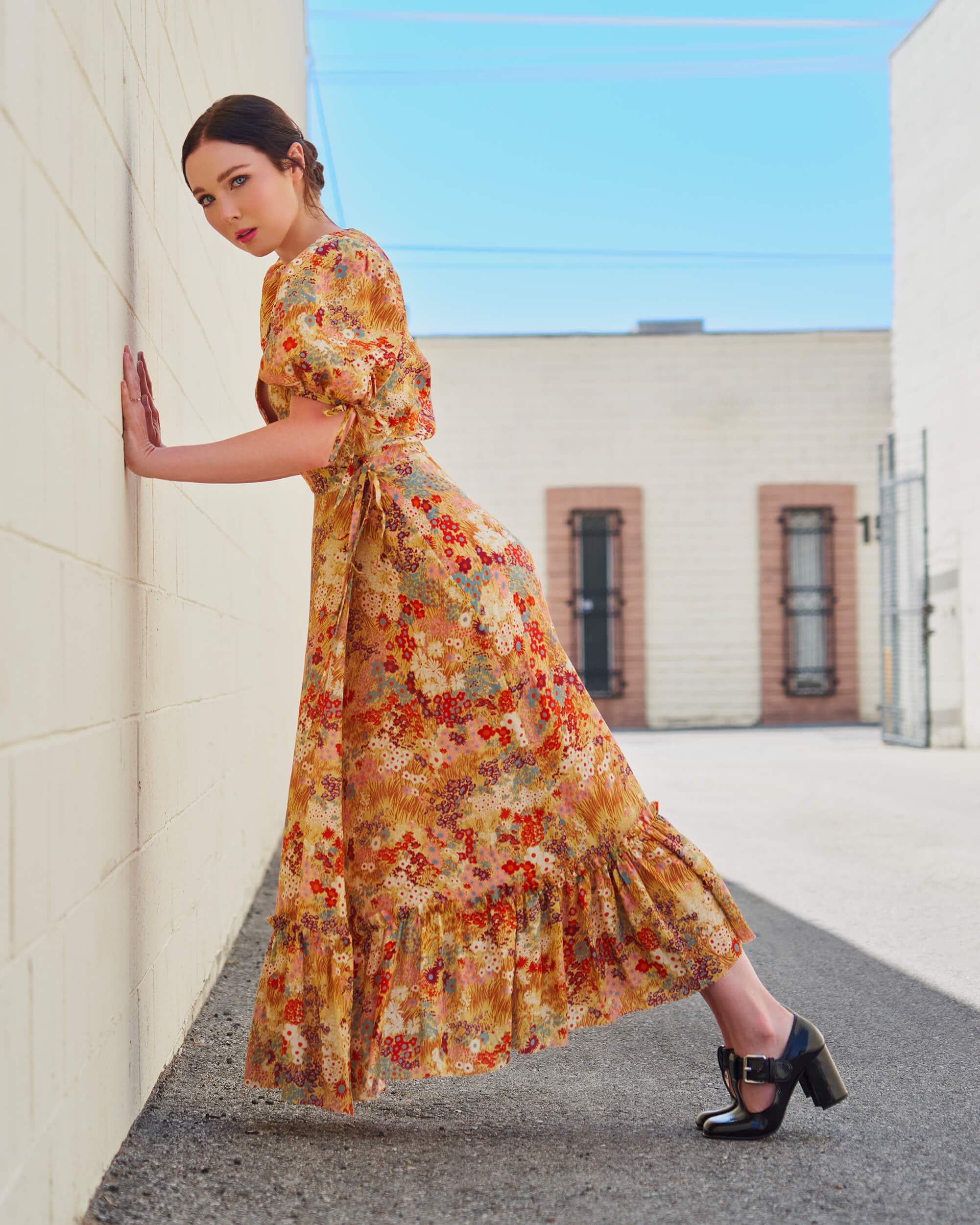
What kind of stories do you dream to tell, as an actress, as a producer, or if you want to add “writer,” “director,” I don’t know if you have any plans on that, too?
I have no plans, meaning I am open to all of it. I like to produce because I love having the bird’s-eye view of the entire production. Stories that I want our company to tell are, in the indie space, unique perspectives on life. I want us to tell character-driven stories, I would be very sad if we ever forgot that, and I want us to promote other filmmakers of all genders and all ethnicities, to tell their perspective of life, whether it’s their perspective of life told through horror, comedy, romance, whatever. We want to use what little we have to help promote them and their ideas out there.
As an actor, I love drama, I can’t help it, I love big emotions, I love dealing with parent and child dynamics, it’s a fertile ground to me. I think no matter what I end up doing, it’ll always tie back to which relationship with the character is the strongest. When I was shooting “Castle,” it was meant to be a good parent-child bond, but 90% of what we created in those 8 years was Nathan [Fillion] and I, and us deciding to focus on how strong, how almost co-dependent Alexis was on her father, and a lot of that coming from her abandonment issues with her mom. Those are all things that, when you’re watching the show, you don’t think about, but that’s what made it grounded because I think everyone has that relationship or has had abandonment issues or co-dependency in their life.
So, whatever the story, because I’m open to all genres, TV, film, theater, animation, I love doing it all, it’ll always come back to which relationship is the strongest. I think that if I read a script and it was not there, I don’t think I could do it.
What does “feeling comfortable in your own skin” mean to you?
I’m still figuring that out. Personally, I keep a diary, which is why I do that with the characters as well, and I just wrote, the other night: “I’m having to retrain myself to speak from my perspective” because I have a mother who is very overpowering, and she was with me when I started my career, and she always needed to be included in my stories, in my experience. So, in my impressionable mind, it became, “Everyone feels like this” or “We went here,” even though I realized, “Why am I speaking for everyone? I can only talk from my experience.” But it was the easier thing to do so I wasn’t constantly corrected and told that there was someone else there. So, I’m just now trying to remind myself and become comfortable with saying, “I’m living my life, I’m the one sitting here, I’m talking to you.”
I think that once I can do that withoutsecond-guessing, that’s what it’ll mean to be comfortable in my skin. But I have to get there first.
“I’m having to retrain myself to speak from my perspective”
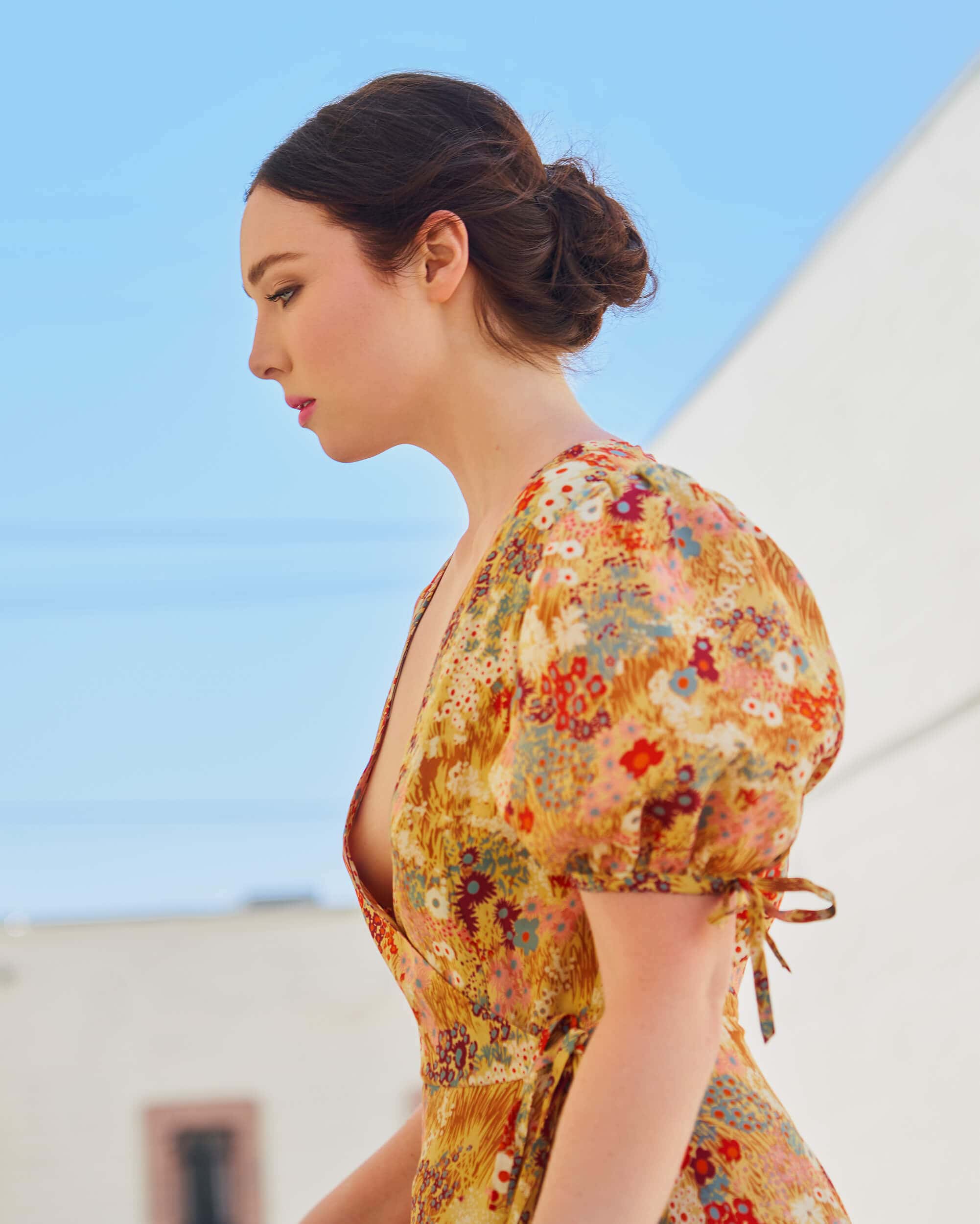
What are you afraid of?
Well, I’ll tell you: I decided to quit drinking about four years ago. I never got in trouble publicly, that’s not what it was about, I probably drank a little too much when I was alone, and I realized that what I’m afraid of, and this is why I quit drinking, was messing up my life, and it being my fault. I’m afraid of making a mistake in my career, be it being sloppy with drinking and having someone say, “We don’t trust her, we can’t work with her,” or being drunk and flirty with someone and ruining my now long-term relationship with my fiancée. I realized that it was, for me, a self-harming tool, that there was no positive that came from it.
That’s my greatest fear, looking back in my life and going, “You didn’t get as far as you could have because you made a mistake.” Because I can’t control the world, I can’t control if another actress gets the part, those are things I have no control over, and that’s fine, but if it’s my fault, if I don’t study as hard as I can, if I don’t love as hard as I can, if I don’t appreciate my time with my loved ones, if I’m caught up in my head and not appreciating the moment, if I let my life pass me by, that’s my fault. That’s why I quit drinking because I’m so deathly afraid of that that I’m not going to let it happen.
Your must-have on set?
I need my phone because I need to see pictures of my dogs. If I’m working and my partner is home, he’ll send me pictures of my dogs, or a friend, whoever, I need pictures of my dogs if I’m away from them, even bad pictures, they don’t need to be cute, I just need to see my dogs.
Have you ever had an epic fail on set?
[Laughs] Yeah… It’s really embarrassing. I was young, I was 17, and I was doing a stoner movie, but I had never smoked weed or smoked a bong before, and I didn’t look up how to do it because I thought I knew how to do it, and I put my mouth all the way around the bong, and I noticed that everyone literally was like laughing, and I was like, “Am I not doing this right?” [laughs] and they were like, “No, you’re not!”. So that was very embarrassing.
I have to tell you, this might be one of the top three answers to the epic fail question of our magazine!
[Laughs] I’m so glad! If you’re gonna fail, be at the top! You have to do it with style, individualism.
Photos by The Riker Brothers

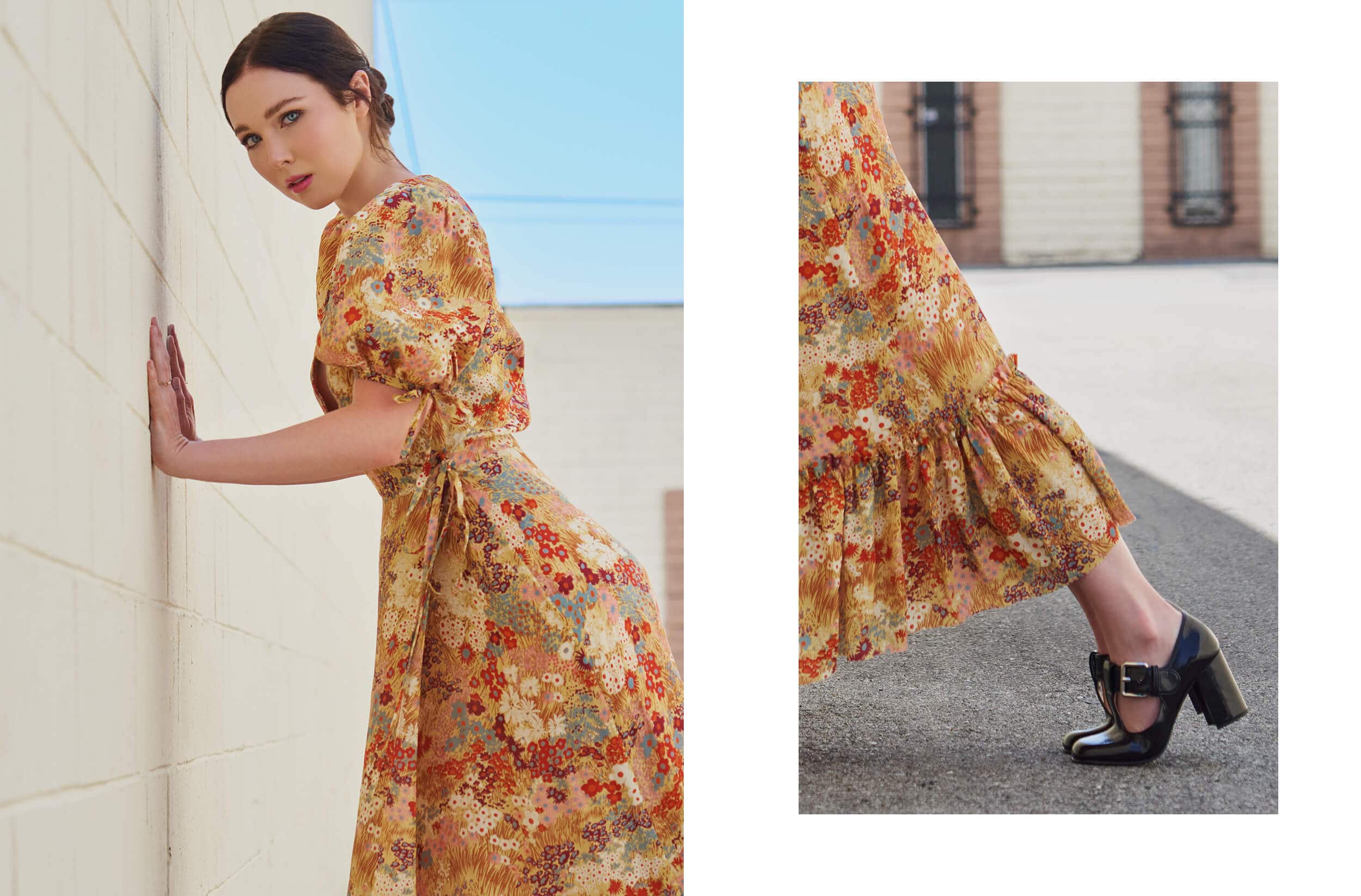




What a wonderfully candid interview with a classy but down to earth celebrity.